Timber firm keeps millions offshore, as Penan mount blockades to save forest
PANDORA PAPERS | Before the break of dawn, Lunai Pada was already up to get ready for her day.
She lives in the village of Long Pakan, a small Penan community in the Middle Baram region located some 150km from the nearest town Miri, in Sarawak.
After a simple breakfast, Lunai travels into the nearby forest to collect rattan to make handicrafts for sale.
Other villagers would collect fruits, medicinal plants or even hunt for game.
Long Pakan is a community of some 55 Penan families, and the villagers live a simple lifestyle that is based on the land and forest.
“We are not like town folks. We don’t go to an office to work or to a shopping mall to buy goods.
“The forest provides what we need,” village chief Pada Jutang said.
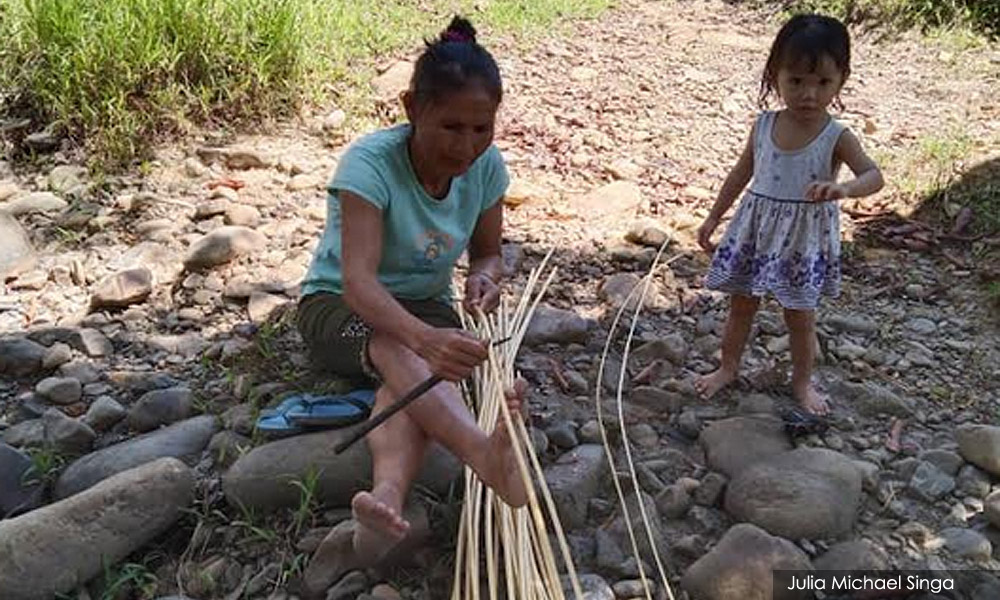
But since August this year, the villagers have been engaged in a standoff with timber giant Samling Group.
The company was granted a permit to begin logging operations on an area considered to be Native Customary Rights (NCR) land by the Penan of Long Pakan.
Switzerland-based NGO Bruno Manser Fonds (BMF) claimed that the Long Pakan villagers saw the first trees being cut by Samling Group in late August, comprising 109 logs at Ba Nyepangah.
A blockade was swiftly put in place by the villagers to prevent Samling from moving machinery and equipment for logging.
Jutang had also lodged a police report over allegations of Samling’s encroachment into NCR land.

The disputes between Samling and the Penan are still unresolved and the blockades remain till today.
British Virgin Islands-based offshore company
The Baram region comprises some of the last remaining primary forests in Sarawak, making the region attractive for timber companies for their logging operations.
According to BMF, some 90 percent of Sarawak’s primary forest has been logged.
Samling is one of the largest timber companies operating in the state. Other major companies include Ta Ann, Reimbunan Hijau, Shin Yang and Interhill.
As the standoff between the Penan and Samling rages on in the heart of Borneo, documents traced to the faraway Caribbeans revealed the stark disparity between the two opponents.
The documents, part of the Pandora Papers exposé, showed that just in one of its subsidiaries, Samling holds more than RM500 million in assets in offshore holdings.
According to documents, obtained by the International Consortium of Investigative Journalists (ICIJ) and sighted by Malaysiakini, Samling founder Yaw Teck Seng established a British Virgin Islands-based offshore company called Caribbean Esskay Limited.
As of March 2017, Caribbean Esskay had an asset value of US$115 million (RM503 million).
The company was set up with the assistance of financial services company Trident Trust, a firm used by many of the global wealthy to establish offshore firms and trusts.
When contacted, a Samling spokesperson said Caribbean Esskay is part of the group’s stable and is a 100 percent owned subsidiary of Samling Global Limited, which was once listed on the Hong Kong Stock Exchange.
“The company, in turn, owns 100 percent of Barama Company Limited, which is active in the timber industry in Guyana.
“As a responsible corporate entity, we adhere to the laws of the countries we operate in, including the requirement to fulfil all our taxation responsibilities,” the spokesperson said.
The Pandora Papers, obtained by the ICIJ through an anonymous source, contain 2.94 terabytes of confidential financial files, amounting to more than 11.9 million documents and other records, from 14 offshore service providers that set up and manage shell companies and trusts in tax havens around the globe.
No stranger to controversies
Teck Seng founded Samling in 1963. Although the company began its business in the timber industry, today it has expanded to include oil palm plantations, automotive and property development with some 20,000 employees globally.
A substantial portion of the group’s business is in its timber operations in Sarawak.
The company is privately owned and does not publish its financial results. However, Teck Seng and his son Yaw Chee Ming were listed in Forbes Malaysia’s 50 Richest 2021 at the 46th position with a net worth of US$360 million (RM1.5 billion).
Over the years, Samling has not been a stranger to controversies involving its operations internationally and globally.
Samling was involved with Concord Pacific Ltd, a company fined US$100 million in 2011 (approximately RM305.59 million at then exchange rates) by the Papua New Guinea government for large-scale illegal logging as part of the country’s Kiunga-Aiambak road project.
Teck Seng had denied that Samling owned Concord Pacific, and said Samling was only a minority shareholder.
In 2010, the Norwegian Pension Fund divested its stake in Samling Global Limited, which was then listed in the Stock Exchange of Hong Kong, due to claims that the group had repeatedly breached regulations in its timber activities in Sarawak and Guyana, contributing to illegal logging and severe environmental damage.
Conflict with the Penan
On the local front, Samling is currently suing environmental group Save Rivers for RM5 million for defamation due to seven articles uploaded between June 23 last year and March 10 this year, regarding certification of timber logged by Samling in the Baram region.
Samling has also strenuously denied claims by the Penan community that it had encroached onto NCR land and was involved in illegal logging operations.
The logging company said it has received consent from the 56 Long Pakan ketua bilik (representatives of families in the Long Pakan community), and that it had been awarded a Permit to Enter Coupe or PEC for Coupe 01A, T0405 Layun on Aug 27, 2021, for the purpose of timber extraction.
“It is important to understand that the classification of NCR land is a complex matter and several key conditions have to be met before any land can be classified as NCR land,” a Samling spokesperson said when contacted.
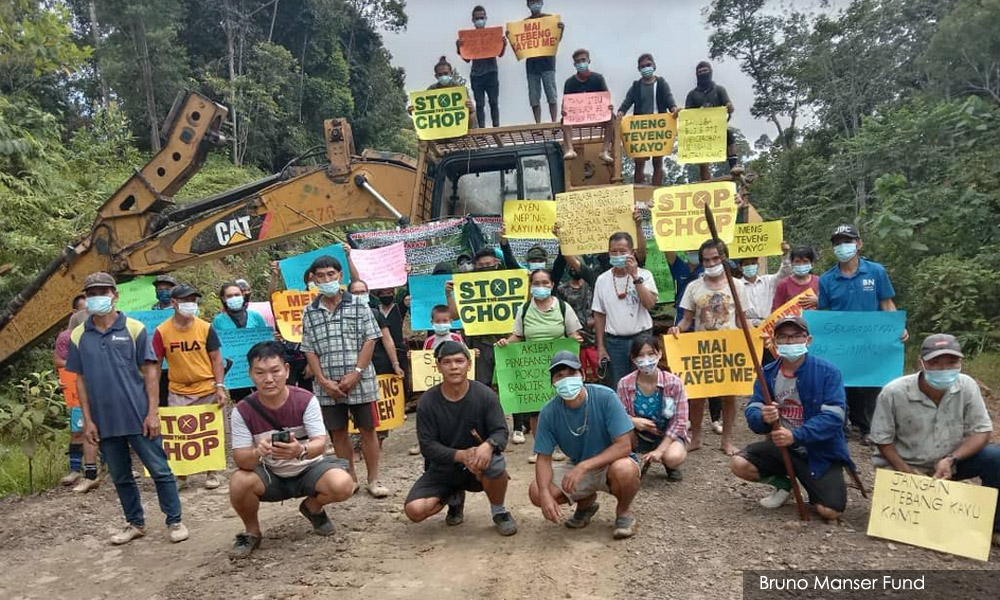
But these explanations have done little to persuade the Penan that their land is not being encroached upon, and the forest they depend on is not under threat.
Besides Long Pakan, the Penan had also set up a second blockade in Long Ajeng in the Upper Baram region on Sept 9.
BMF said that 12 community leaders in the region had issued a joint letter to Sarawak Chief Minister Abang Johari Openg requesting urgent government action to halt Samling’s operation in the area.
However, Samling again stressed that the Sarawak Forest Department had granted a permit to enter the area concerned to harvest timber and obtained consent from local village heads.
“We strongly dispute any accusation of ‘encroachment’ into primaeval forests as we have obtained the consent of the representatives of the Long Selaan and Ba Buboi villages of the area,” the company added.
The letters sent by BMF to the Forest Department Sarawak on behalf of the community over alleged encroachment of territories in Long Ajeng and Long Laman have yet to be answered.
Malaysiakini reached out to the Forest Department Sarawak for comment but has yet to get a response.
Increasing tension
For the Penan, logging is a direct threat to their way of life and something they have spoken out against repeatedly, to deaf ears.
“We are not happy when the company (Samling) continues to work because the forest will vanish, forest products are difficult to find such as sago, rattan and medicines. The game is also difficult to hunt and the polluted water and soil erosion cause the fish to die,” Jutang had said in a press statement released by BMF earlier this year.
Penan community leader and founder of the NGO Keruan, Joe Komeok, said that contrary to claims by timber companies, the firms have never negotiated with the Penan before commencing activities in the area.
“Most logging companies do not obtain free, prior and informed consent from our indigenous communities... this has led to the disenfranchisement of our people and dispossession of our lands,” Komeok told Malaysiakini.
The logging activities have also caused tensions between younger Penan and the community elders, he said.
For these youths, the timber companies offer them jobs and income that could not be provided by their traditional lifestyle.
“Sadly, some of the Penan end up working for the (timber) companies that destroyed their forest.
“They have no choice as they can no longer see the forest as a place for their survival, even though they realise the companies do not pay them well,” he said.
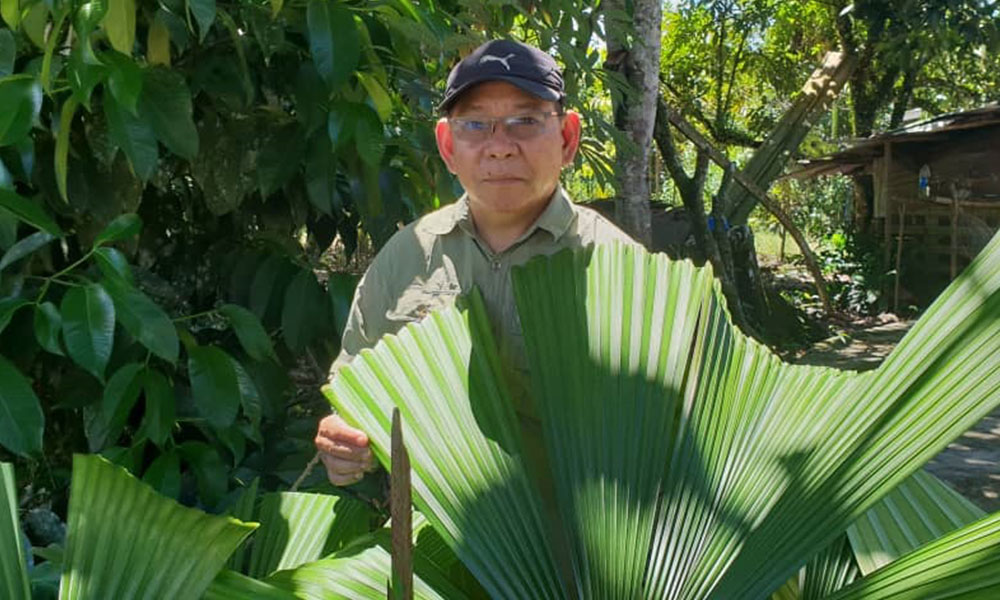
Komeok said this disenfranchisement can be better addressed if governments improved access to education, healthcare and poverty eradication programmes for the Penan, instead of inevitably forcing the young to take up jobs that threaten the community’s way of life.
“Officials from both state and national governments didn’t respond to requests for development for the Penan,” he said.
NCR land boundaries disputed
One sticky point in the battle between the Penan and timber companies is the complex issue of NCR land.
Generally speaking, logging is not allowed on an area designated as NCR land by the state Land and Survey Department, but the community and the state disagree on NCR land boundaries.
Komeok said government surveys conducted to determine the boundaries of the land claimed by the Penan do not take into account their nomadic traditions.
“The Penan see their territories based on their nomadic traditions. The government used air surveys which only took into account settled or worked land that they could see from the air,” he said.
In 2017, working together with BMF, Komeok presented a set of 23 maps to Deputy Chief Minister Douglas Uggah Embas on the land claimed by the Penan.
He said the maps were produced using drones as well as the oral traditions of village chiefs and elders.
But four years on, the group is still waiting for a response from the state government to recognise the land claimed by Penan communities based on the maps.
‘We just want them to go away’
For Jutang, logging activities have brought little benefit to the people of Long Pakan and do not address their most urgent needs for education and healthcare.
The nearest clinic and primary school are about two hours away by motorcycle, and the nearest secondary school is three hours away.
When there is a medical emergency, the Penan have no choice but to seek help from the logging camps, leaving them in a difficult position given the standoff with Samling.
Some who spoke to Malaysiakini now fear that with the current dispute, the Samling employees will not assist the Penan in cases of emergency.
“We just want them (the timber companies) to go away and let us live according to our traditions,” Jutang said.
As the Penan try their best to protect their forest and way of life, business continues as usual for Samling.
On Nov 2 this year, the Samling Power Company Ltd, a subsidiary of the Samling Group in Nepal, concluded an initial public offering.
Business is good. - Mkini
✍ Credit given to the original owner of this post : ☕ Malaysians Must Know the TRUTH
🌐 Hit This Link To Find Out More On Their Articles...🏄🏻♀️ Enjoy Surfing!



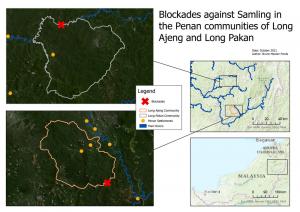
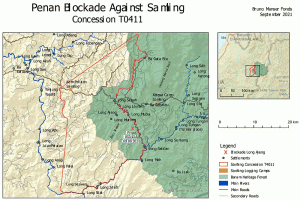
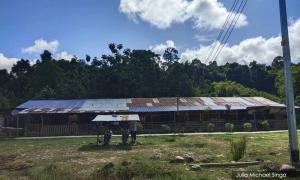

















Post a Comment